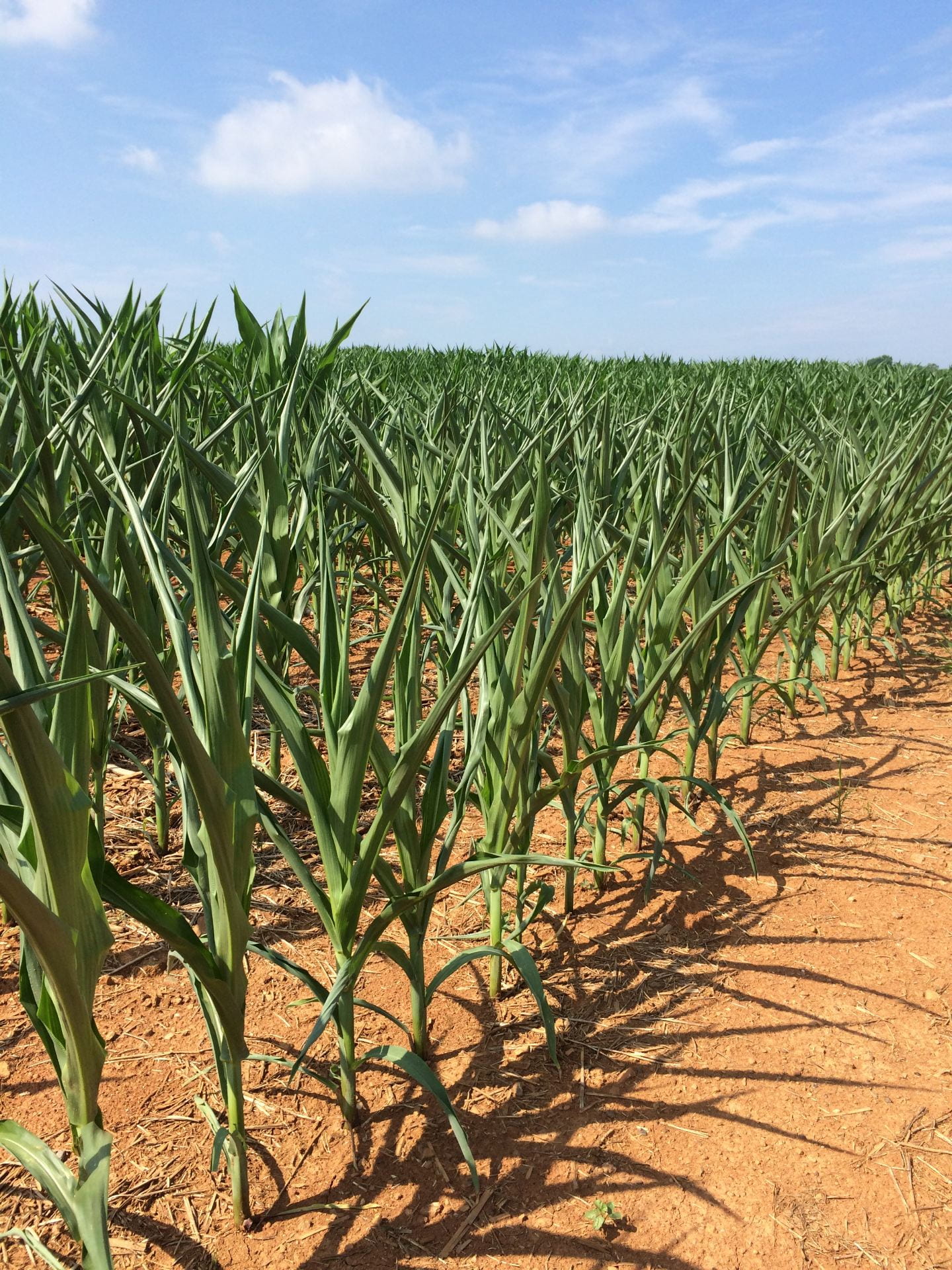Nicole Fiorellino, Assistant Professor & Extension Agronomist
University of Maryland, Dept. of Plant Science and Landscape Architecture
The conditions this growing season have been a major improvement over the conditions we experienced during the 2018 growing season. Generally, the spring weather was favorable for timely planting of corn on the upper and mid-shore, southern Maryland, and northern Maryland regions, with other regions not lagging far behind. The 2019 growing season has generally been good to us, there was early optimism in the monthly crop reports, but by the end of June, warm and dry weather began around the state. Some areas may have received some spotty thunderstorms throughout July, but the July crop reports indicated droughty conditions throughout the state. As we enter into a new month with minimal precipitation thus far, farmers are concerned about the effects from the prolonged dry and warm conditions on corn yield.

Warm temperatures and low rainfall cause stress to growing crops and this weather stress can be a major problem prior to pollination, as stress during this stage will impact the potential number of kernels per row. Warm temperatures, specifically, can cause corn plants to utilize more energy to carry out normal functions. Low rainfall can cause corn ear tips to lose kernels. Poor root development, from poor planting conditions and soil compaction early in the season, can amplify the effects of weather stress observed later in the season. But generally, the potential impact on corn yield from warm, dry weather will depend on the maturity of the corn crop when it experiences the weather stress.
Corn is particularly sensitive to weather stress during the late vegetative growth stages when the number of kernels is determined. Four days of weather stress between V12 and V14 could reduce yields 5 to 10%. Even into tassel emergence, total number of kernels can be affected, with yield reduction from 10 to 25% with four days of weather stress at this stage. Silk emergence and pollination is a critical period of moisture use in corn, with weather stress affecting pollination and leading to kernel abortion – four days of stress during silking could reduce yields up to 50%. Generally after pollination, reduced kernel fill can be expected during weather stress, with four days of weather stress post-pollination possibly reducing yields 30 to 40%. During blister and milk stages, kernel abortion is a concern during weather stress, while shallow or unfilled kernels can occur with stress during the dough stage, and reduced kernel weight is a concern during dent.
In summary, there is potential for reduction in corn yield due to the hot, dry weather but the impacts differ based on the maturity of the corn when it experiences the stress. Weather stress during silking and pollination can have the most severe impact on yield potential, with impacts from weather stress decreasing as corn moves further into reproductive maturity.
